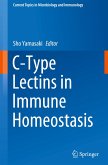Many questions remain unresolved as researchers continue to characterize and define the nature of normal immune homeostasis and determine how these processes are dysregulated in immunodeficiency, as well as in autoimmune and lymphoproliferative disorders. Immune Homeostasis: Methods and Protocols focuses on experimental techniques for measuring and analyzing immune cell dynamics, with a particular emphasis on examining lymphocyte programmed cell death in different contexts. With contributions by leading experts in the field, the collection examines detailed protocols for studying various pathways of apoptosis and necrosis in different types of hematopoietic cells, both in vitro and in vivo, methods for studying the maintenance of lymphocyte populations in the steady-state or following infectious challenges in both mice and humans, and technical insights into state-of-the-art genomics tools, among other topics. Written in the highly successful Methods in Molecular Biology(TM) series format, chapters include introductions to their respective topics, lists of the necessary materials and reagents, step-by-step, readily reproducible laboratory protocols, and tips on troubleshooting and avoiding known pitfalls.
Valuable and easy to use, Immune Homeostasis: Methods and Protocols serves as an important toolkit for basic and clinical scientists interested in examining various aspects of immune homeostasis in both normal and disease-related contexts in order to further study the dynamic processes that contribute to homeostasis of the immune system.
Valuable and easy to use, Immune Homeostasis: Methods and Protocols serves as an important toolkit for basic and clinical scientists interested in examining various aspects of immune homeostasis in both normal and disease-related contexts in order to further study the dynamic processes that contribute to homeostasis of the immune system.








